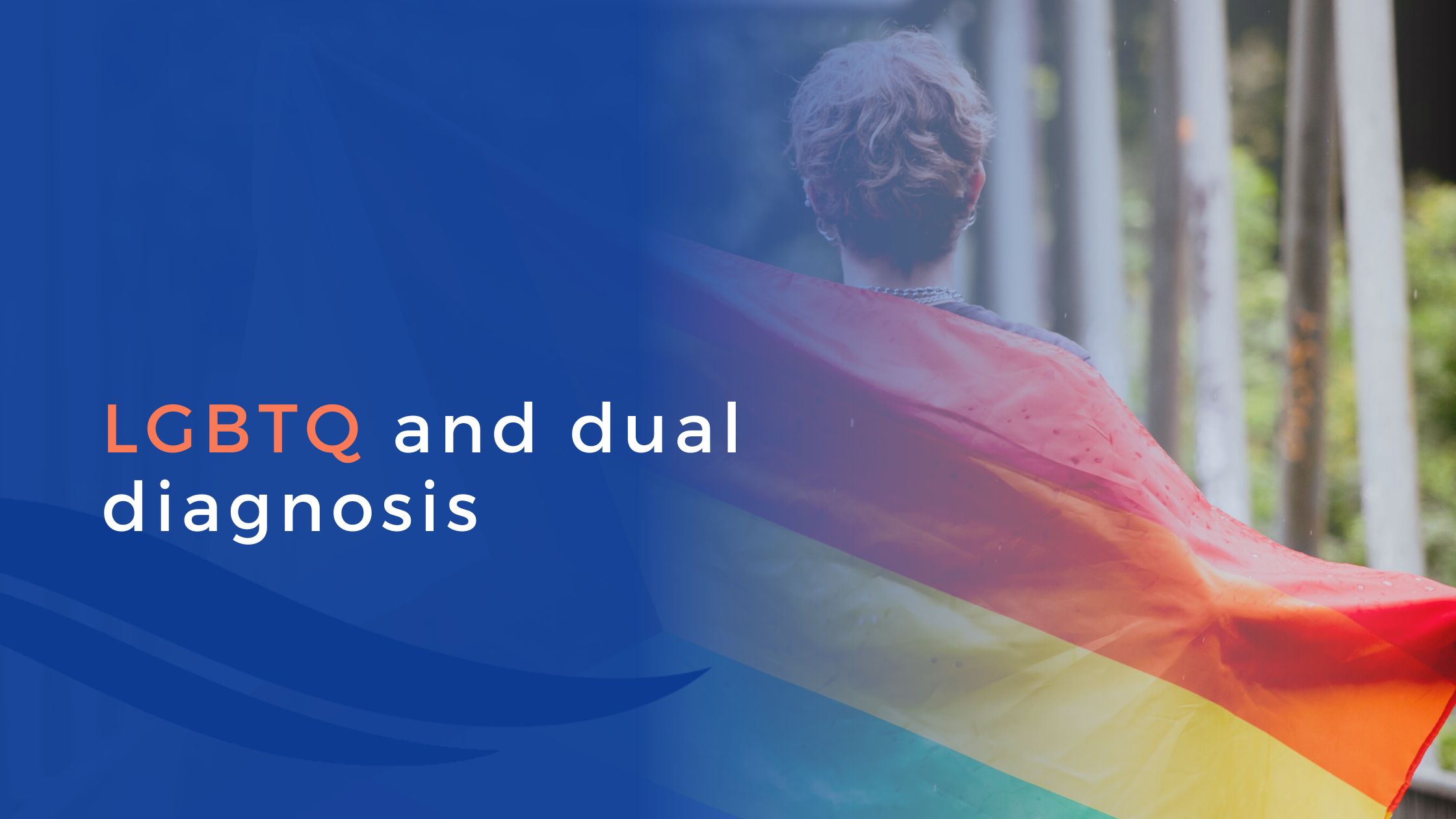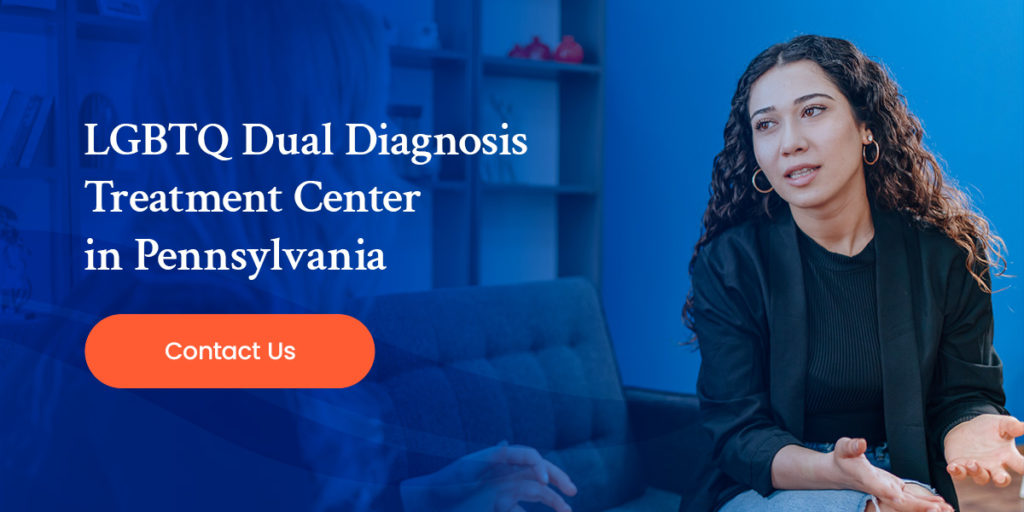
Written By
DreamLife RecoveryThe rate of addiction is high among people in the LGBTQIA+ community because of the daily challenges they endure. On top of it all, consistent discrimination can cause damage to their overall mental health and well-being. At DreamLife, we will welcome you with open arms into our treatment centers and walk alongside you each step of the way.
What Is Dual Diagnosis?
Someone who has a dual diagnosis has an addiction to a harmful substance — like drugs or alcohol — along with a mental disorder. Unfortunately, these conditions occur together quite frequently. Researchers believe there are three reasons why they influence each other:
- Mental disorders can be a factor in drug use and addiction.
- Substance use and addiction can contribute to mental disorder development.
- Risk factors — like genetics, trauma and stress — can lead to mental disorders and substance use.
LGBTQIA+ Community and Mental Health
Those who identify as LGBTQIA+ often experience discrimination, which can take a toll on their mental health. The following factors are constant biases that can damage the way an individual feels about themself and their community:
- Physical abuse from parents.
- Exclusion from social groups or activities.
- Loss of child custody, job loss or other public discrimination.
- Peer ridicule and rejection.
- Family or spiritual community rejection.
For this reason, LGBTQIA+ individuals are twice as likely to experience a mental health condition than heterosexual adults — especially if they are not in a supportive home environment. Reports show that only 37% of LGBTQIA+ youth consider their home an affirming space.
Addiction in LGBTQIA+ Populations
Some factors that explain the high rate of addiction within LGBTQIA+ populations:
- Stress: Those in the LGBTQIA+ community can face daily high-stress situations, regardless of improvements in gay rights. They can encounter social prejudices like stigma, employment discrimination and rejection. These issues can encourage a dual diagnosis of substance use along with anxiety, depression and other conditions.
- Coping mechanisms: To cope with stressors, many turn to tobacco, drugs or alcohol, as they believe these will help them calm down. Relying on a substance to curb stress leads to addiction.
- Mood: Depression is shared among many in the LGBTQIA+ community. For a slight boost of happiness, opioids are often the choice. Opioids trigger receptors in the brain to produce dopamine, leading to temporary confidence, euphoria and power.
- Stimulants: Methamphetamines and cocaine are common drugs used as stimulants. The user will feel much more energy and endurance to get through the day.
LGBTQIA+ Dual Diagnosis Treatment Center in Pennsylvania
If you’re ready to seek recovery, we can assist you. At DreamLife Recovery, we can treat any dual diagnosis. With our wide selection of addiction therapies, we work to address the root of the problem with compassion and care. We also have an LGBTQIA+ residency program complete with individual and group therapy sessions to handle any need, such as:
- Gender identification issues
- Self-esteem and self-love
- Coming out to your family or friends
- Discrimination
- Shame
- Depression
- Anxiety
You are not alone. Contact DreamLife Recovery today to start feeling like your true self.








